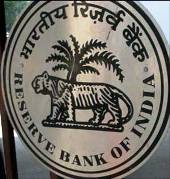 India's austerity push in a budget to be unveiled on Thursday threatens to have the unintended impact of adding to inflationary pressure, hampering chances for rapid interest rate cuts that the government wants, RBI officials told Reuters.
India's austerity push in a budget to be unveiled on Thursday threatens to have the unintended impact of adding to inflationary pressure, hampering chances for rapid interest rate cuts that the government wants, RBI officials told Reuters.
New Delhi plans to cut public spending by up to 10 percent in the fiscal year starting in April, officials involved in the budget preparations told Reuters last week, as Finance Minister P Chidambaram struggles to bring down the fiscal deficit to 4.8 percent of gross domestic product and stave off a credit rating downgrade.
Yet, officials in the Reserve Bank of India fear that cutting capital spending on projects with strong multiplier effects like building roads and bridges, won't help revive growth, which is seen as a priority if the economy is to avoid a downward spiral.
And they also worry that maintaining populist spending on subsidies for food, fuel, fertiliser and cooking gas will push up prices.
While this spending, fuels consumer demand, especially for food, it is also a key driver of inflation in India.
"If spending on social schemes comes at the expense of capital expenditure, it will be bad," an official with direct knowledge of policymaking told Reuters.
"Inflation will go up, and there will be food inflation from the demand side."
But with an election just a year away, Prime Minister Manmohan Singh's beleaguered government, facing a backlash for raising fuel prices as well as a string of corruption scandals, is in a bind.
It needs to get its fiscal house in order, but cutting the outlay on populist schemes would alienate voters, already upset over stubbornly high inflation.
"Given that election is around the corner, it would be difficult for the government to cut its social outlay. Cutting investment expenditure is a soft target," a second official involved with monetary policy-making told Reuters.
Asia's third-largest economy is on track to grow as little as 5 per cent in the fiscal year that ends next month, its worst in a decade, even as inflation remains sticky near 7 per cent.
To get the economy going, the government should ideally be spending on infrastructure, which would in turn kick start stalled private sector investment.
Investment in technology, better transport and storage for India's vast agriculture sector could also help dampen supply-side inflation pressures by reducing wastage.
Instead, some of the savings on capital investment planned in the budget will be reallocated to help fund a $22.27 billion food security bill, officials have told Reuters.
The central bank has privately expressed its discomfort to the finance ministry over high government spending towards consumption.
"The RBI wants less non-planned expenditure and more capital expenditure because it supports growth," a third senior official said.
Non-planned expenditure refers mostly to subsidies and consumption-based spending.
None of the officials wanted to be identified because they are not allowed to speak to media.
The RBI is also concerned about a trillion rupee cash hoard that the government has piled up during the closing weeks of the current fiscal year as it desperately tries to bring the fiscal deficit within a targeted 5.3 percent.
Economists believe the government is holding onto the cash so it will be able to borrow less in 2013/14, and keep the credit rating agencies at bay.
The trouble is that taking that money out of circulation instead of putting it to work puts another drag on an economy already losing momentum, and dilutes the impact of a recent rate cut as banks keep deposit rates high in order to attract funds.
Graphic https://link.reuters.com/baw24t on fiscal deficit
The RBI has long resisted pressure from the government to cut interest rates, but relented slightly in January by reducing its policy repo rate by 25 basis points to 7.75 per cent.
Making its first cut in nine months, the central bank warned that high food prices could exacerbate inflation in the latter half of 2013.
After that cut and fall in the annual inflation rate to 6.62 per cent in January, the lowest in three years, economists have stuck with expectations that interest rates will only be able to come down another 0.75 percentage point over the course of the year.
Chidambaram wants the RBI to cut rates further to stimulate growth and in the bargain reduce the fiscal deficit, which would in turn lower government borrowing and spur private investment.
That argument could be at risk if the central bank isn't convinced that inflation is under control.
RBI Governor Duvvuri Subbarao made clear last weekend, while attending a G20 summit in Moscow, that the central bank is looking beyond the headline figure of the government's budget deficit, and examining the type of spending cuts planned.
"It's very important, for growth to accelerate and for inflation to remain contained, that investments take place.
"For private investment to take place the government has to spend on capital expenditure, on infrastructure," Subbarao said.
"So while we look at the headline fiscal deficit number in the budget, we will look also at the quality of fiscal adjustment in determining our monetary policy stance."
(Additional reporting by Maya Nikolaeva in Moscow; Editing by Suvashree Dey Choudhury and Tony Munroe and Simon Cameron-Moore)












 © 2025
© 2025